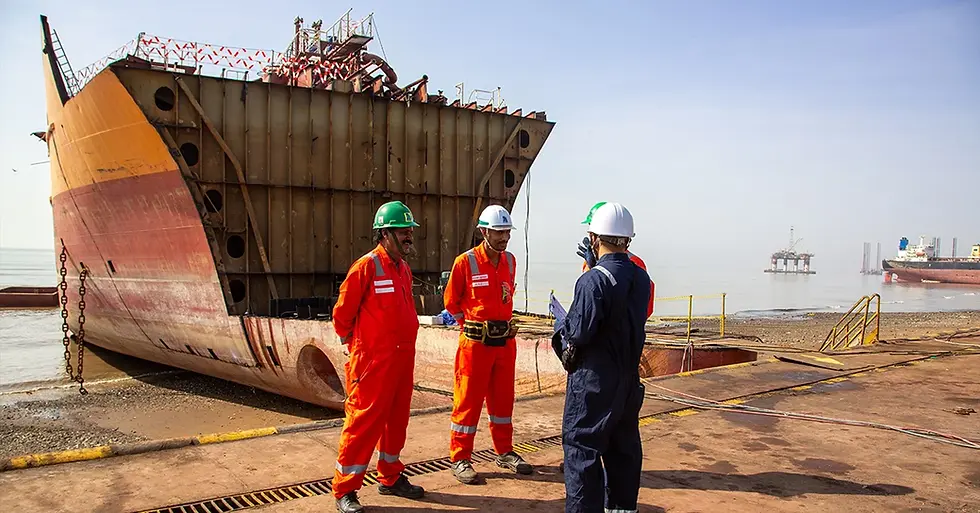Why Responsible Ship Recycling Is Now a Business Imperative
- Captain’s Desk

- May 31, 2025
- 2 min read

Introduction
The global maritime industry is undergoing a fundamental shift. What was once a profit-driven race for tonnage is now being redefined by environmental accountability, regulatory pressure, and reputational risk. At the center of this evolution is one key transition: responsible ship recycling.
The Problem with Traditional Shipbreaking
For decades, end-of-life vessels were sold to the highest bidder—often ending up in shipbreaking yards with poor safety, labor, and environmental records. The consequences have been severe: toxic pollution, worker exploitation, and irreparable ecosystem damage.
But this model is no longer viable for shipowners looking to meet today’s compliance, investor, and ESG expectations.
The Rise of Green Recycling Standards
The Hong Kong International Convention and EU Ship Recycling Regulation are no longer distant goals—they are present-day requirements. Regulators, insurers, financiers, and charterers now scrutinize how vessels are disposed of, not just where they trade.
Shipowners who choose the cheapest route face growing legal, financial, and reputational risks.
A Shift in Owner Mindset
Forward-thinking owners now understand that how a ship exits the market matters as much as how it operated. Responsible recycling is not just a compliance box to check—it’s a strategic decision tied to:
Reputational protection
Stakeholder confidence
Investor alignment
Access to future capital and charters
Somap Global’s Approach
At Somap Global, we work closely with owners, operators, and investors to ensure vessels are recycled in accordance with international environmental, labor, and safety standards. From pre-sale advisory to post-delivery verification, we manage every step—so clients can focus on growth, not litigation.
Why It Matters Now
2025 is already shaping up to be a defining year for sustainable shipping. Market players who fail to adapt risk being left behind—while those who lead in transparency and responsibility will unlock new value streams and long-term trust.
Conclusion
Responsible ship recycling is no longer optional—it’s smart business. At Somap Global, we’re proud to support this industry transition and help our clients do well by doing good.
🔹 Want to know more?Reach out to our team at info@somapglobal.com or explore our solutions.



Comments